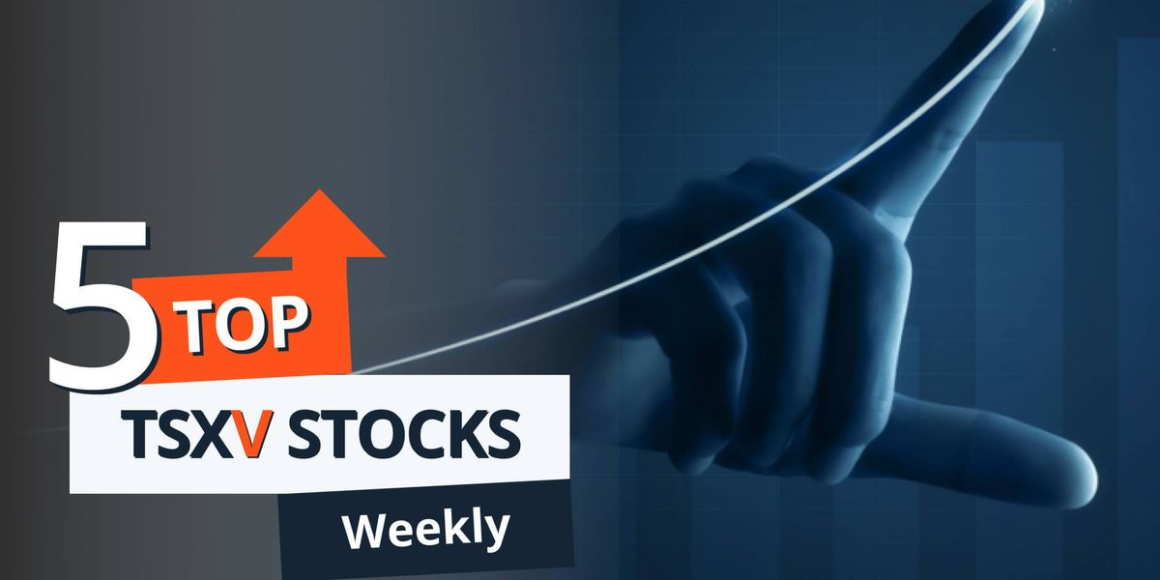Markets saw gains this past week as silver breached the US$30 mark for the first time in more than 10 years last Friday (May 17). Gold also saw significant gains, and reached a weekly high of US$2,418.04 the same day. Meanwhile, copper surged above US$10,000 per metric ton (MT) Monday (May 13) on the London Metals Exchange.
The decreasing numbers have renewed investor expectations that the Federal Reserve could cut its benchmark rate as soon as September.
How has the week’s news influenced the resource sector on the TSX Venture exchange? Read on to learn which companies saw the biggest gains.
Weekly gain: 133.33 percent; market cap: C$10.02 million; current share price: C$0.035
Lomiko Metals is an exploration and development company working to advance two battery material projects in Québec, Canada, to production.
The funding will be used for a pilot program to upgrade flake graphite from the La Loutre project into battery-grade anode material.
Weekly gain: 126.19 percent; market cap: C$363.15 million; current share price: C$0.48
Copper Fox Metals is a copper-focused exploration and development company with assets located in the US and Canada. Copper Fox’s primary projects include the Schaft Creek joint venture, and its wholly owned Van Dyke and Eaglehead projects.
Weekly gain: 61.54 percent; market cap: C$28.88 million; current share price: C$0.42
Desert Mountain is an exploration, development and production company focused on advancing helium, hydrogen and natural gas assets in New Mexico and Arizona, US.
Its operations in West Pecos consist of the West Pecos Gas field, which hosts 188 wells across 77,000 acres of oil and gas leases and has expansion potential of up to 100 additional wells. The site is also home to a helium processing facility that is capable of producing various grades of helium. The company is working to construct a 60,000 gallon accumulation tank that, when finished, will allow it to process natural gas, condensate and helium.
Desert Mountain also owns the Holbrook helium project in Arizona’s Holbrook basin. It comprises over 1 million acres of helium prospects and is situated in a region that has historic production of 9.23 billion cubic feet of helium with grades between 8 and 10 percent.
Desert Mountain will retain ownership rights of its wells in New Mexico and Arizona and will jointly share profits from new hydrogen and helium wells in Arizona.
Weekly gain: 57.14 percent; market cap: C$41.2 million; current share price: C$0.22
Surge Copper is a copper exploration company working to advance its Berg and Ootsa projects in British Columbia.
The company did not report news last week but trended upward alongside the surging price in copper.
Weekly gain: 54.55 percent; market cap: C$31.56 million; current share price: C$0.17
East Africa Metals is a gold exploration company focused on operations in Ethiopia.
The company also owns a 70 percent share in the Harvest polymetallic project in the Tigray region of Ethiopia as well as a 30 percent streaming interest in the Magambazi gold mine in the Tanga region of Tanzania.
The TSX, or Toronto Stock Exchange, is used by senior companies with larger market caps, while the TSXV, or TSX Venture Exchange, is used by smaller-cap companies. Companies listed on the TSXV can graduate to the senior exchange.
As of September 2023, there were 1,713 companies listed on the TSXV, 953 of which were mining companies. Comparatively, the TSX was home to 1,789 companies, with 190 of those being mining companies.
The exchange lists a handful of other fees and expenses companies can expect, including but not limited to security commission and transfer agency fees, investor relations costs and director and officer liability insurance.
These are all just for the initial listing, of course. There are ongoing expenses once companies are trading, such as sustaining fees and additional listing fees, plus the costs associated with filing regular reports.
Investors can trade on the TSXV the way they would trade stocks on any exchange. This means they can use a stock broker or an individual investment account to buy and sell shares of TSXV-listed companies during the exchange’s trading hours.
Article by Dean Belder; FAQs by Lauren Kelly.
Securities Disclosure: I, Dean Belder, hold no direct investment interest in any company mentioned in this article.
Securities Disclosure: I, Lauren Kelly, hold no direct investment interest in any company mentioned in this article.
Editorial Disclosure: Fortune Minerals is a client of the Investing News Network. This article is not paid-for content.


Leave a Reply